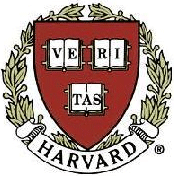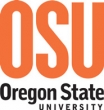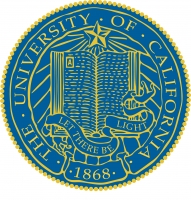Tuesday, March 31. 2009
The "Great Conversation" Begins At Home: U. Michigan's Open Access Week
 Following University of Michigan's Library's Open Access Week
Following University of Michigan's Library's Open Access Week Molly Kleinman has blogged Lessons from Open Access Week
Some Responses:
Question: Surely there was some discussion of Michigan congressman John Conyer's Bill HR 801 attempting to overturn the NIH OA mandate?
Comment 1: Whether one accepts the definition of the two kinds of Open Access ("gratis" and "libre") or one prefers to deny free access the honorific of "open," the fact is that we do not even have free online access (whatever we choose to call it), and that asking nonproviding authors to do more, and asking institutions and funders to mandate that they do more is even more difficult than just getting them to provide the free online access, which only 72 institutions and funders -- out of perhaps 10,000 worldwide -- are so far doing. (Without even that, it's all just a name-game.)
(Whether there is really any burning need for "re-use rights" for the verbatim texts of peer-reviewed research journal articles (as opposed to research data, or Disney cartoons) is perhaps also worth giving some more thought.)
Comment 2: For how students can help OA, see: "The University's Mandate To Mandate Open Access."
Comment 3: Before getting too caught up in the theory of the "Great Conversation," it might be a good idea to make sure free access (at the very least) is provided to its target content -- by mandating OA (for example, at University of Michigan!)
Stevan Harnad
American Scientist Open Access Forum
Saturday, March 28. 2009
On Throwing Money At Gold OA Without First Mandating Green OA, Again
 Pre-emptive Gold Fever seems to be spreading.
Pre-emptive Gold Fever seems to be spreading. Following hard on the heels of University of California's Gilded New Deal with Springer -- UC subscribes to the Springer fleet of journals for an undisclosed fee, but, as part of the Deal, UC authors get to publish their articles as Gold OA for free in those same Springer journals -- now Universities UK (UUK) and the Research Information Network (RIN) are jointly dispensing advice on the payment of Gold OA fees (which is fine) but without first giving the most important piece of advice:
A university should on no account spend a single penny on Gold OA fees until and unless it has first adopted a Green OA mandate to deposit all of its own refereed journal article output in its own institutional repository.

 There is still time for UUK and RIN to remedy this, by prominently setting the priorities and contingencies straight. I fervently hope they will do so!
There is still time for UUK and RIN to remedy this, by prominently setting the priorities and contingencies straight. I fervently hope they will do so!(Peter Suber is expressing the very same hope, but in his characteristically gentler and less curmudgeonly way.)
On Mon, Mar 30, 2009 at 4:30 AM, David Prosser, Director of SPARC-Europe, wrote in the American Scientist Open Access Forum:Stevan HarnadAs all of the UK research councils, as well as some of the major UK funding charities, have green mandates in place I don’t see how this can possibly be described as ‘pre-emptive gold fever’.I'm so glad you said that, David! Here is the very specific reply that should fully elucidate this question, which cuts to the very heart of what is at issue:
(1) There are two kinds of Green OA mandates: funder mandates and university mandates.
(2) Yes, the UK is the only country in the world in which all 7 of its national research funders (plus 7 more charities and intercouncils) mandate Green OA (and that is just wonderful: a global inspiration and example in every respect!).
(3) However, UK funder mandates only cover funded research output.
(4) UK university (and research institution) mandates, in contrast, cover all UK research output, funded or unfunded, across all fields.
(5) And the UUK/RIN advice on Gold OA funding was from and to UK universities, not funders.
(6) Most UK universities do not yet mandate Green OA. (Only 6 UK universities plus two departments do -- although that is still the largest number of university mandates of any country in the world today!).
(7) Therefore my point -- that on no account should funding Gold OA be recommended until and unless Green OA has been mandated -- stands, for the intended recipients of the UUK/RIN advice: UK universities.
(I might add that even funding councils that mandate Green OA for the research they fund can help more by stipulating that the default locus of the mandated Green deposit should be the fundee's own institutional repository -- from which it can be exported/harvested to central repositories if desired -- rather than mandating direct central deposit. That creates a synergy between the two kinds of mandates, with the funder mandates encouraging and facilitating the adoption of university mandates at each of the fundees' institutions, so as to cover their unfunded research output too.)
American Scientist Open Access Forum
Spain's 3rd and 4th Green OA Mandates, Planet's 71st and 72nd
 A second university mandate (Universidad Carlos III de Madrid) plus a second funder mandate (Madrid Autonomous Community) from Spain, raising the worldwide total of Green OA self-archiving mandates to 72!
A second university mandate (Universidad Carlos III de Madrid) plus a second funder mandate (Madrid Autonomous Community) from Spain, raising the worldwide total of Green OA self-archiving mandates to 72!¡Viva España!
Friday, March 27. 2009
Richard Poynder Interviews Helene Bosc: OA's French Connection
 One more of Richard Poynder's revealing and insightful OA Interviews, this time of France's first and foremost OA champion, Hélène Bosc.
One more of Richard Poynder's revealing and insightful OA Interviews, this time of France's first and foremost OA champion, Hélène Bosc.For the full Poynder/Bosc interview, click here.
Peter Suber, writes:
"This is another richly textured interview, unearthing details about the early history of OA, OA in France, OA in Europe, and the career of one of Europe's first and most influential OA activists.... It's difficult to excerpt, but here's a little to whet your appetite..."Here are some excerpts from Peter's excerpts:
Former INRA librarian, [convenor for the EuroScience Working Group on Science Publishing,] and passionate champion of Open Access (OA) in France, Hélène Bosc began advocating for OA in 1995, before the term even existed...
Like other librarians who have embraced OA, Bosc's starting point was the so-called serials crisis....
RP: So how would you present the case for self-archiving mandates both generally, and within the context of France?
HB: Mandates are necessary to fill up repositories. All the author surveys and outcome studies that have been undertaken worldwide show this to be so, including studies in France: In a study I did, for instance, I showed that by assisting researchers to archive Ifremer has managed to capture 80% of recently published papers in the institution's repository, Archimer. By contrast HAL has captured only 10-15 % of French research output....
RP: How would you describe France's take-up of OA as compared to other Western countries?
HB: As we said, HAL was created over seven years ago, and following the signing of the protocole d'accord in July 2006, all French researchers were supposed to deposit their publications in HAL. That would seem to suggest that we were ahead of other countries, and yet today we are not: In spite of our technical lead, HAL has achieved the global default deposit rate of only 10-15 %....
RP: What is at stake?
HB: What is at stake is that if France wants to be in the research vanguard, it must embrace OA quickly, before all the other countries pull ahead.
My view is that as the first French universities see the deposit rate in their repositories approach 100% they will understand the OA citation advantage, and start to benefit from all the other advantages provided by OA....
Thursday, March 19. 2009
MIT Adopts World's 70th Green Open Access Self-Archiving Mandate
[With many thanks to Professor Hal Abelson for the information]
 OA Self-Archiving Policy: Massachussetts Institute of Technology (MIT)
OA Self-Archiving Policy: Massachussetts Institute of Technology (MIT) Full list of institutions
Massachussetts Institute of Technology (MIT) (US* institutional-mandate)
http://web.mit.edu/
Institution's/Department's OA Eprint Archives
[growth data] http://dspace.mit.edu/
Institution's/Department's OA Self-Archiving Policy
MIT Faculty Open-Access Policy
Passed by Unanimous of the Faculty, March 18, 2009
The Faculty of the Massachusetts Institute of Technology is committed to disseminating the fruits of its research and scholarship as widely as possible. In keeping with that commitment, the Faculty adopts the following policy: Each Faculty member grants to the Massachusetts Institute of Technology nonexclusive permission to make available his or her scholarly articles and to exercise the copyright in those articles for the purpose of open dissemination. In legal terms, each Faculty member grants to MIT a nonexclusive, irrevocable, paid-up, worldwide license to exercise any and all rights under copyright relating to each of his or her scholarly articles, in any medium, provided that the articles are not sold for a profit, and to authorize others to do the same. The policy will apply to all scholarly articles written while the person is a member of the Faculty except for any articles completed before the adoption of this policy and any articles for which the Faculty member entered into an incompatible licensing or assignment agreement before the adoption of this policy. The Provost or Provost's designate will waive application of the policy for a particular article upon written notification by the author, who informs MIT of the reason.
To assist the Institute in distributing the scholarly articles, as of the date of publication, each Faculty member will make available an electronic copy of his or her final version of the article at no charge to a designated representative of the Provost's Office in appropriate formats (such as PDF) specified by the Provost's Office.
The Provost's Office will make the scholarly article available to the public in an open- access repository. The Office of the Provost, in consultation with the Faculty Committee on the Library System will be responsible for interpreting this policy, resolving disputes concerning its interpretation and application, and recommending changes to the Faculty.
The policy is to take effect immediately; it will be reviewed after five years by the Faculty Policy Committee, with a report presented to the Faculty.
The Faculty calls upon the Faculty Committee on the Library System to develop and monitor a plan for a service or mechanism that would render compliance with the policy as convenient for the faculty as possible.
Monday, March 16. 2009
Harvard's 3rd Green OA Mandate, Planet's 69th: John F. Kennedy School of Government
 Many thanks to Amy Brand, Program Manager of the Harvard University Library Office for Scientific Communication (OSC), for forwarding this press release announcing the adoption of Harvard's 3rd Green OA Mandate, this time by the John F. Kennedy School of Government.
Many thanks to Amy Brand, Program Manager of the Harvard University Library Office for Scientific Communication (OSC), for forwarding this press release announcing the adoption of Harvard's 3rd Green OA Mandate, this time by the John F. Kennedy School of Government. And yet another well-deserved round of congratulations to Stuart Shieber, Faculty Director of the OSC and the architect of this remarkable (and seemingly unending) series of Green OA mandates from Harvard! (Harvard Medical School looks like it will be next!)
One can only echo what is stated at the end of the press release, which is that although this is the world's 69th Green OA self-archiving mandate, "none are... as far-reaching as the one put forth at Harvard"! (Nor, I might add, is there now any better model for emulation worldwide.) -- S.H.
For Immediate Release: March 16, 2009
Media Contact: Doug Gavel (617) 495-1115 Harvard Kennedy School Communications
Harvard Kennedy School Faculty Votes for Open Access for Scholarly Articles
CAMBRIDGE, MA – The faculty of the John F. Kennedy School of Government at Harvard University voted overwhelmingly last week to make all faculty members’ scholarly articles publically available online at no charge, providing for the widest possible dissemination of faculty research and scholarship. The historic vote adds Harvard Kennedy School to a growing list of faculties at the university to endorse the initiative.
“The scholarly articles authored by Harvard Kennedy School (HKS) faculty members enhance the understanding of many critical and urgent public policy issues, and by embracing open access we seek to maximize the avenues by which these ideas are shared,” said Kennedy School Dean David T. Ellwood. “In the developing world especially, where access to expensive journals is rare, there is a pressing need for access to the latest policy advice and scholarship coming from HKS faculty.”
Under the new policy, HKS will make articles authored by faculty members available in an open access online repository, the contents of which will be searchable through web tools such as Google Scholar. Authors will maintain the right to distribute articles on their own websites, and educators will have the right to freely provide the articles to students, so long as the materials are not used for profit. Faculty members will have the ability to “opt out” of the requirements of the new policy in the case of specific articles in which the policy proves to be incompatible with the obligations under a particular publisher’s contract.
The vote at HKS follows a proposal by a university-wide committee aimed at encouraging wider dissemination of scholarly work. The Faculty of Arts and Sciences (FAS) and faculty at Harvard Law School (HLS) each voted last year to endorse legislation similar to that approved by the HKS faculty.
Stuart M. Shieber, the James O. Welch Jr. and Virginia B. Welch professor of computer science (FAS) and faculty director of the Office for Scholarly Communication, who introduced the legislation last year said, “I am delighted that the faculty of yet another school at Harvard has chosen to embrace open access and that momentum is spreading on campus. Now that the Office for Scholarly Communication is staffed, the DASH (Digital Access to Scholarship at Harvard) repository is in development, and we have experience working with both the Faculty of Arts and Sciences and the Law School, we look forward to working with the Harvard Kennedy School to implement their faculty’s important decision smoothly and efficiently.”
Although other academic institutions have considered similar open access policies, none are considered as far-reaching as the one put forth at Harvard.
Friday, March 13. 2009
Planet's 1st Library Faculty Green OA Mandate: 7th US Mandate, 68th Worldwide
 From Peter Suber's OA News: This is the planet's first Green OA Mandate by a Library Faculty. Librarians have been at the vanguard of the Open Access movement, often trying heroically, but in vain, to convince other faculty university-wide to deposit, as well as to convince the university to mandate deposit. Here is something they can do on their own, to provide an example and show the way: mandate deposit within their own department or faculty. (This is also an instance if Arthur's Sale's suggestion that "patchwork mandates" be adopted at the laboratory, department or faculty level, rather than waiting for university-wide mandates)
From Peter Suber's OA News: This is the planet's first Green OA Mandate by a Library Faculty. Librarians have been at the vanguard of the Open Access movement, often trying heroically, but in vain, to convince other faculty university-wide to deposit, as well as to convince the university to mandate deposit. Here is something they can do on their own, to provide an example and show the way: mandate deposit within their own department or faculty. (This is also an instance if Arthur's Sale's suggestion that "patchwork mandates" be adopted at the laboratory, department or faculty level, rather than waiting for university-wide mandates)The OSU mandate is even the optimal ID/OA (DDR) mandate, as Peter notes below. To the Library Faculty at Oregon State University, who have now put their own work where their heart (and hard work) is, kudos! -- SH
Comment [from Peter Suber]. Kudos to the OSU Library Faculty Association (LFA) for this strong policy. I applaud the mandatory language, the dual deposit-release strategy (or what Stevan Harnad calls immediate deposit / optional access), and the clarity in making waivers apply only to OA, not to deposits. I like the way the LFA will help faculty deposit their articles as well as obtain better terms from publishers. You can classify this as a "faculty vote" policy, as opposed to an administrative policy, and as a departmental rather than university-wide policy. Now that the library faculty have taken the lead, it's time for other departments and divisions of OSU, already operating under a policy to encourage self-archiving, to strengthen their policy as well.
An OA mandate for the OSU library faculty
The library faculty at Oregon State University have adopted an OA mandate (text and guidelines).
From today's announcement:
On March 6, library faculty adopted a policy that requires deposit of final published versions of scholarly works in ScholarsArchive@OSU, the libraries' institutional repository. This is the first open access mandate adopted by a library faculty in the United States, according to Michael Boock, head of digital access services for OSU Libraries.
Since 2004, OSU Libraries has worked to collect the university’s scholarship in digital form to ensure greater accessibility and long-term preservation of the scholarship. ScholarsArchive@OSU, which recently ranked fourth among U.S. digital repositories, contains dissertations, theses, a wide variety of university technical reports, working papers and series and increasingly, published articles, papers and presentations. The current contributions come from across campus, and are contributed on a voluntary basis.
The new policy means that the 42 library faculty will automatically contribute all of their scholarship to the archive, which will not be the case for faculty in other departments, who can continue to contribute on a voluntary basis.
No later than the date of publication or distribution, library faculty members will deposit an electronic copy of the final published version of their works in an appropriate format (such as PDF) to ScholarsArchive@OSU. The policy applies to articles, conference papers and proceedings, substantial presentations and internal reports of interest to a broader audience that are authored or co-authored by library faculty members.
“As faculty members at Oregon’s land grant university the library faculty believes they have a responsibility to share their expertise and research with the public,” Boock said. “As librarians, they believe in the widest possible access to information and its long-term preservation. The policy they’ve adopted supports these goals.”From the policy text:
...The policy will apply to all scholarly works authored or co-authored while a faculty member of the University Libraries, beginning with works created after March 2009....
When a publisher is involved who will not agree to the terms of this policy as stated in the Science Commons Access-Reuse Addendum, the University Librarian or the University Librarian’s designate will waive application of the policy upon written request from faculty. When a waiver is granted, faculty are encouraged to deposit whatever version of the article the publisher allows (e.g. pre or post-print)....
The Coordinator [who also grants waivers] may assist the author in getting terms from the publisher that are most agreeable to the author.
From the policy guidelines:
[The Library Faculty Association] recommends that authors select the Access/Reuse agreement type using the Science Commons Scholar’s Copyright Addendum Engine....
Posted in OA News by Peter Suber at 3/13/2009 05:13:00 PM
Monday, March 9. 2009
University of California: Throwing Money At Gold OA Without Mandating Green OA
 On Sat, Mar 7, 2009 at 5:03 PM, Ivy Anderson, California Digital Library, UCOP, wrote:
On Sat, Mar 7, 2009 at 5:03 PM, Ivy Anderson, California Digital Library, UCOP, wrote:Stevan,Ivy, Apologies. Now fixed, and comments enabled.
I wanted to post this comment to your OA blog, but the blog’s comment function doesn’t display properly in my browser (whether Firefox or IE).
Here is a response via email which you’re welcome to post to your blog if you wish. I’m also responding on the SPARC OA Forum list.My inference was based on this passage from the Scientist article:
You appear to have inferred from reading an article published on The Scientist blog that UC has bundled extra payment into its licensing deal with Springer in order to procure open access for UC authors. Nowhere in that article, or elsewhere, has a statement been published to that effect.
I hope you'll agree that the description is ambiguous, to say the least, and not least because "Big Deal" negotiations with publishers are always a quid-pro-quo bargaining matter, so that whether or not it was monetized in the form of an explicit surcharge, the upshot is the same: UC subscribes to the Springer fleet as a package, and part of the package deal is that OA fees for UC authors publishing in those journals are waived."University of California Libraries... minted an agreement with the publishing giant Springer so that all articles written by UC-affiliated authors would be published with full and immediate open access in any of Springer's 2,000-odd journals, even if the rest of the articles in the journals are subscription-only. Under the arrangement, UC authors retain the copyright to their work and don't have to pay additional fees on a per-article basis. In exchange, the publisher receives an undisclosed sum of money that is 'part and parcel of our standard licensing arrangement with Springer'..."
UC does not at all conflate journal affordability and research accessibility; rather, we have an institutional responsibility to address both issues, and believe we can do so in a principled and sustainable manner, by redirecting our support for research publication from the ‘readership’ side of the transaction to the publication side.I will try to translate this into more explicit and transparent terms in order to clarify the underlying dynamics and to show that it all leads in an unscalable and unsustainable direction:
(1) Yes, UC needs both to (1a) provide access to the research output of other institutions for UC researchers and to (1b) provide access to UC research output for researchers at other institutions.
(2) Responsibility 1a is fulfilled by negotiating the best possible deal with publishers for journal subscriptions/licenses and responsibility 1b is fulfilled by adopting a Green OA self-archiving mandate for all UC research output, as Harvard, Stanford, NIH, and over 60 other universities and funders worldwide have done (for the research output of their own faculty and fundees).
(3) UC's journal affordability problem is addressed directly by 1a; and 1b is UC's local contribution to solving the global research accessibility problem.
(4) It should already be transparent that if other universities follow Harvard's, Stanford's and UC's example with 1b, then the research accessibility problem is solved: 1b is a solution that scales.
(5) It does not require much more analysis to see that once universal Green OA mandates by institutions and funders have solved the research accessibility problem, (5a) the journal affordability problem becomes a far less pressing one; and that (5b) universal Green OA is likely (though not certain) to lead eventually to subscription cancellations and a transition to Gold OA publishing, with each institution redirecting some of its own subscription cancellation savings to pay for its own authors' Gold OA publishing fees.
(6) What requires a bit more reflection is to see that for all this to happen, Green OA (1b) must come first: Until all research is OA, UC researchers do not have access to whatever journals UC cannot afford to subscribe to. And until all research is OA, UC cannot cancel journals to which its researchers need access.
(7) Now it is true that if, mirabile dictu, the publisher of every journal that UC can afford were to offer UC the same sort of "Big Deal" Springer has offered -- "subscribe to our journal(s) at our asking price and your institution's authors can have Gold OA for free" -- and if every research-active institution bought into that deal for every journal it could afford, then that too would (probably) be enough to provide universal OA: But consider the probability -- and the price!
(8) Universal "Big Deal" Gold would buy universal OA at the price of (8a) locking in current journal prices and (8b) locking in all their currently co-bundled products and services (print edition, online edition, peer review); and (8c) what institutions would be negotiating with each publisher annually thereafter would no longer be journal subscriptions and journal subscription prices, but the institution's own researchers' continuing right to publish in each of those journals.
(9) This is of course an absurd and dysfunctional outcome, because journal-level subscriptions and article-level publication charges have fundamentally different units. (One is an entire, annually renewable, incoming journal or fleet of journals from a single publisher, the other is single, one-at-a-time, outgoing articles, destined for different journals and publishers, and depending in each individual case on the outcome of peer review for their acceptance, rather than on just the annual payment for the service of peer review.)
(10) Hence negotiating Gold OA on the "Big Deal" license model is incoherent and is neither scaleable nor sustainable: It means locking in everything that is co-bundled with a subscription today, at today's prices, and treating that as the unit of the transaction even when the unit of transaction must clearly cease to be the journal or the publisher, as the practice spreads across all institutions as well as all journals and publishers competing for their annual "membership" dues. Consortial collective bargaining for all this would just make this oligopoly even more absurd.
 That is why I have called such short-sighted reckonings "sleep-walking." But if they are coupled with Green OA Mandates, the incoherence of "memberships" no longer matters, because the real solution -- universal (mandated) Green OA -- is on the way.
That is why I have called such short-sighted reckonings "sleep-walking." But if they are coupled with Green OA Mandates, the incoherence of "memberships" no longer matters, because the real solution -- universal (mandated) Green OA -- is on the way.Our Springer arrangement is one such initiative; our support for SCOAP3, the Sponsoring Consortium for Open Access Publishing in Particle Physics, is another.SCOAP3 is likewise a co-bundled, price-lock-in "membership" scheme, but it matters much less, because it is being pushed through in the only field that already has near 100% Green OA self-archiving without its having to be mandated. Ensure 100% Green OA in all other fields and the silliness of lock-in Gold OA membership schemes will likewise matter far less. They matter now precisely because they are distracting sleepy institutions from the urgent need to mandate Green OA (or giving them the golden illusion that it will not be necessary).
In these and other efforts, UC seeks to redirect library funds toward open access publishing in order to both foster more unfettered access to research and provide financial support to the scholarly publishing system at the point in the publication chain where a truer market relationship exists – between authors and the journals in which they publish – in the hope that the cost of research publication can be brought down thereby over the long term.This may sound as if it makes sense in these abstract terms, but once it is looked at more closely, as I have just done above, in (1) - (10), it proves to be incoherent.
(a) Redirecting library funds from subscriptions to OA publication charges before all research is OA is paying for what other subscribing institutions are already paying for (the publication of your own institution's outgoing articles) and for what can already be had without having to pay even more (the mandated self-archiving of your own institution's outgoing articles).
(b) Redirecting library funds from subscriptions to OA publication charges before all research is OA is locking in publishers' current asking-prices and co-bundled products and services.
(c) As to "provid[ing] financial support to the scholarly publishing system at the point in the publication chain where a truer market relationship exists – between authors and the journals in which they publish" -- that's precisely what this sort of "membership Big Deal" is not doing, as you will quickly see if you just try to scale it up in your mind, across journals, publishers and time: The "market relationship" is at the level of an individual outgoing article, on a particular occasion, and is dependent on the outcome of peer review; it is not an annual incoming journal quota, the way subscriptions are. Hence it makes no sense to treat it as an annual individual institutional "membership" fee, let alone a global consortial one.
(d) As to the hope of bringing journal costs down: again, this is conflating the journal affordability problem with the research accessibility problem. -- Indeed, unless UC mandates Green OA, it is letting affordability get in the way of accessibility, even though the latter is fully within reach.
(e) And if you have any doubts about my contention that this local solution is incoherent and is neither scalable nor sustainable, please spell out for me how you envision a university -- formerly an annual subscriber, now an annual "member" of countless Gold OA journals -- will negotiate its annual "membership" payments from year to year with each journal, while its researchers need to go on publishing? Will there be annual acquisitions and cancellations of the right to publish in each journal? (This is yet another symptom of conflating the journal affordability problem with the research accessibility problem.)
Articles will be deposited into UC’s eScholarship Repository through our Springer arrangement, also supporting the institutional deposit that you favor.It is not the deposit of articles whose Gold OA status has been paid for with hard cash that I favor! Those articles are already OA (and at quite a price). What I favor is the mandatory deposit of all institutional research output, irrespective of whether it is published in an OA or a non-OA journal.
If UC does go ahead and mandates Green OA, then all my objections are immediately mooted, because although these additional publisher deals are still incoherent, premature, unscalable and unsustainable, they no longer matter. However, if these local subscription/membership deals are being pursued instead of mandating Green OA, then they matter very much, because they are needlessly and thoughtlessly retarding the universal OA that is already within reach. (And that is why I call them "somnambulism.)
The deposited articles will be the final published versions, avoiding the concerns about version control that can arise through deposit of final author manuscripts. We think this is a very good arrangement indeed, and we negotiated it while wide awake.I wish I could agree, but in fact everything you have said by way of reply unfortunately confirms the opposite: "version control" is not the OA problem: version absence is. The ones who are fussing about the importance of having the publisher's PDF are not all those would-be users worldwide who cannot access 85% of annual published articles at all today, in any version. The latter is the problem that Green OA mandates are designed to solve. The "version control" problem is trivial, and will be taken care of by the institutional repository software: Please take care of the far more urgent and consequential version-provision problem first.
I write this all in the fervent hope that UC -- the biggest single player in the US OA arena -- will take the long-awaited step that will help awaken the slumbering giant, and make the dominoes fall worldwide at long last: Mandate Green OA.
Best wishes,
Stevan
Stevan Harnad
American Scientist Open Access Forum
Harvard Mandate Adds ID/OA to its FAQ

 Excellent news from Harvard! It looks as if the Harvard Green OA Mandate has added an ID/OA Immediate Deposit Clause with no opt-out.
Excellent news from Harvard! It looks as if the Harvard Green OA Mandate has added an ID/OA Immediate Deposit Clause with no opt-out. This would make Harvard's mandate the optimal Green OA Mandate model, now ready for all universities worldwide to emulate: rights-retention (with optional opt-out) plus Immediate-Deposit (without opt-out).
And please remember that the three main reasons researchers are not self-archiving spontaneously are (1) worries that it might be illegal, (2) worries that it might put acceptance by their preferred journal at risk, and (3) worries that it might take a lot of time. They need mandates from their institutions and funders not in order to coerce them to self-archive but in order to embolden them to self-archive, making it official policy that it is not only okay for them to self-archive, but that it is expected of them, and well worth the few minutes worth of extra keystrokes per paper.
The Harvard mandate now has all the requisite ingredients for performing this facilitating function: Deposit itself is required, but negotiating rights-retention and making the deposit OA can be waived if there are reasons to do so. One cannot ask for a better policy than this: Its worldwide adoption will bring us OA as surely as nightfall is followed by day. -- Stevan Harnad
From Peter Suber's Open Access News
At Harvard, waivers apply to OA, not to deposits
The Harvard Office for Scholarly Communication has updated two of the FAQs on the university's OA mandates. I'm not posting all the new language, just the new answers to two existing questions:
From the Policy FAQ:
What do I have to do to comply with this policy?
Here is the one-line answer: ADDENDUM or WAIVER but in any case DEPOSIT....
Whether or not you included the addendum or the publisher accepted it, you should always deposit the author's final version of your article in the DASH repository....
From the Procedural FAQ:
Should I include my article in the Harvard repository even if I have gotten a waiver for it? [PS: Formerly: May I be able to include...?]
Yes. The repository accepts not only articles covered by the license granted to Harvard under the FAS policy, but also articles not covered by the license but for which the publisher grants, or the author has otherwise secured, sufficient rights. Even if you take a waiver, the publisher's agreement may provide, or you may be able to negotiate, sufficient rights to allow copies of your article to be made publicly available in the Harvard repository. The publisher may ask that certain conditions be met, some of which the repository can accommodate (for example, an embargo period during which the article will not be made publicly available)....
Comment. The new language makes clear that the Harvard policies expect deposit even when faculty members obtain waivers and do not or cannot authorize OA. This is an excellent policy and welcome clarification.
Sunday, March 8. 2009
U. Edinburgh: Scotland's 6th Green OA Mandate, UK's 22nd, Planet's 67th
 (Thanks to Peter Suber's Open Access News.)
(Thanks to Peter Suber's Open Access News.) Note that Edinburgh's is the optimal ID/OA Mandate. (Let us hope Edinburgh will also implement the automatized
University of Edinburgh (UK* institutional-mandate)
http://www.ed.ac.uk/
Institution's/Department's OA Eprint Archives:
[growth data] http://www.era.lib.ed.ac.uk/
http://www.publications.lib.ed.ac.uk/
Institution's/Department's OA Self-Archiving Policy:
http://www.acaffairs.ed.ac.uk/Committees/Senate/Meetings/200809/20090127/C4-OpenAccess.pdf

 The University of Edinburgh has adopted an OA mandate. Here's an excerpt from the Open Access Publications Policy (January 27 - February 4, 2009), the proposal which the university's Electronic Senate approved on February 18, 2009:
The University of Edinburgh has adopted an OA mandate. Here's an excerpt from the Open Access Publications Policy (January 27 - February 4, 2009), the proposal which the university's Electronic Senate approved on February 18, 2009:This... Publications Policy... requires researchers to deposit their research outputs in the Publications Repository, and where appropriate in the Open Access Edinburgh Research Archive in order to maximise the visibility of the University’s research....
This policy will be implemented [i.e. become mandatory] from January 2010, and in the meantime, researchers are encouraged to deposit outputs....
The Publications Repository (PR) is a closed repository for use only within the University of Edinburgh and is an internal University tool for research output management, while Edinburgh Research Archive (ERA) is a public open access repository, making content available through global searching mechanisms such as Google.
This policy requires each researcher to provide the peer reviewed final accepted version of a research output to deposit. The policy encourages the deposit of an electronic copy of nonpeer reviewed research, particularly where this may be used for national assessments. Researchers (or their proxies, eg research administrators) will deposit these research outputs in the PR, and at the same time provide information about whether the research output can be made publicly available in ERA. It will then be automatically passed into ERA, where this is allowable, with no further input from the researcher or their agent....
There are several strong reasons for pursuing the requirement for the deposits of such research outputs at the moment:
1. The impact of research is maximized because there is growing evidence that research deposited in Open Access repositories is more heavily used and cited
2. The deposit of outputs in ERA will support compliance with Research Council and other funding agency requirements that research outputs are available openly.
3. This will ensure that each research output has consistent metadata and ensures longevity which, for example, a researcher’s own website does not.
4. Items which are already in Edinburgh Research Archive are well used. The average number of times each item was downloaded during 2008 was 228, with the top countries downloading Edinburgh research being: United States, United Kingdom, Australia, China, Iran and India.
5. Researchers, research groups or Schools can use the PR to provide automatically generated output for their own websites, or for their curriculum vitae.
6. Future possible metrics based research assessment will require us to ensure that Edinburgh’s research be cited as much as possible, and this means that it must be as visible as possible....
9. This will become a competitive tool for Edinburgh’s research by enhancing its reputation and branding as a good place to carry out research....
11. The world of scholarly communication is changing—adopting this policy in Edinburgh will help us move forward within this changing environment. Other universities require their researchers to deposit research outputs. Harvard University, Stirling University—the first in the UK to do so, and very recently the University of Glasgow, have adopted institutional requirements for such deposit.
12. Such a deposit requirement is in line with other UoE policies on knowledge exchange, public accountability and serving the public good....
Since this initiative requires changed patterns of work from researchers, there will be many questions some of which are addressed in this section....
-- What happens if I don’t want to make the research output public? There will always be a variety of circumstances where it is not possible to deposit, for example where a researcher does not wish to go public with their research immediately, because they wish to publish further, or where commercial reasons exist or where there are copyright issues (considered below). In these cases the research output should be deposited but only the metadata will be exposed in the PR the item will not be passed into ERA until permission is given.
-- What happens if the publisher does not agree? You should try to avoid assigning the copyright to the publisher or granting them an exclusive license. Rather, you should aim to grant a nonexclusive licence which leaves you with the ability to deposit the work in the University Repositories and possibly make it available in other digital forms.
-- How should I communicate this with the publisher? There will be advice and guidance on how to achieve this and template forms to show how you can amend Publisher copyright forms.
-- What about research outputs which are not journal articles? The PR and ERA can accept most research output types including books, book chapters, conference proceedings, performances, video, audio etc. In some cases – for example books not available electronically – the PR/ERA will hold only metadata, with the possibility of links to catalogues so that users can find locations....
-- What about my research data? Data supporting research outputs is also required by RCs to be made available? and this can be included where requested. IS is establishing a working group to consider research data issues....
-- I would like to publish in an author-pays Open Access journal. Does this mean that I also have to deposit? Yes, please deposit the research output in the normal manner....
(Page 1 of 2, totaling 14 entries)
» next page
EnablingOpenScholarship (EOS)
Quicksearch
Syndicate This Blog
Materials You Are Invited To Use To Promote OA Self-Archiving:
Videos:
audio WOS
Wizards of OA -
audio U Indiana
Scientometrics -
The American Scientist Open Access Forum has been chronicling and often directing the course of progress in providing Open Access to Universities' Peer-Reviewed Research Articles since its inception in the US in 1998 by the American Scientist, published by the Sigma Xi Society.
The American Scientist Open Access Forum has been chronicling and often directing the course of progress in providing Open Access to Universities' Peer-Reviewed Research Articles since its inception in the US in 1998 by the American Scientist, published by the Sigma Xi Society.
The Forum is largely for policy-makers at universities, research institutions and research funding agencies worldwide who are interested in institutional Open Acess Provision policy. (It is not a general discussion group for serials, pricing or publishing issues: it is specifically focussed on institutional Open Acess policy.)
You can sign on to the Forum here.
Archives
Calendar
Categories
Blog Administration
Statistics
Last entry: 2018-09-14 13:27
1129 entries written
238 comments have been made


